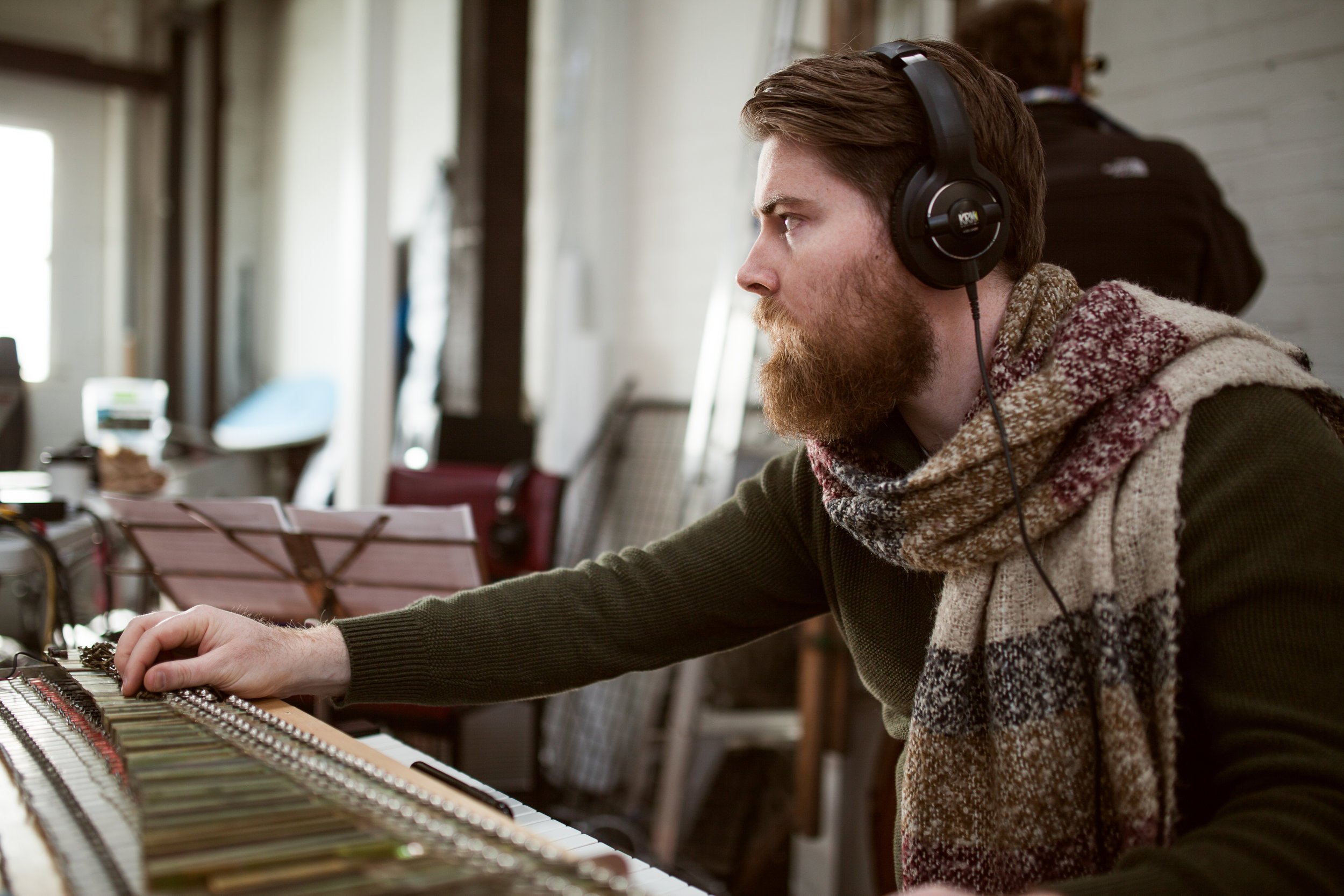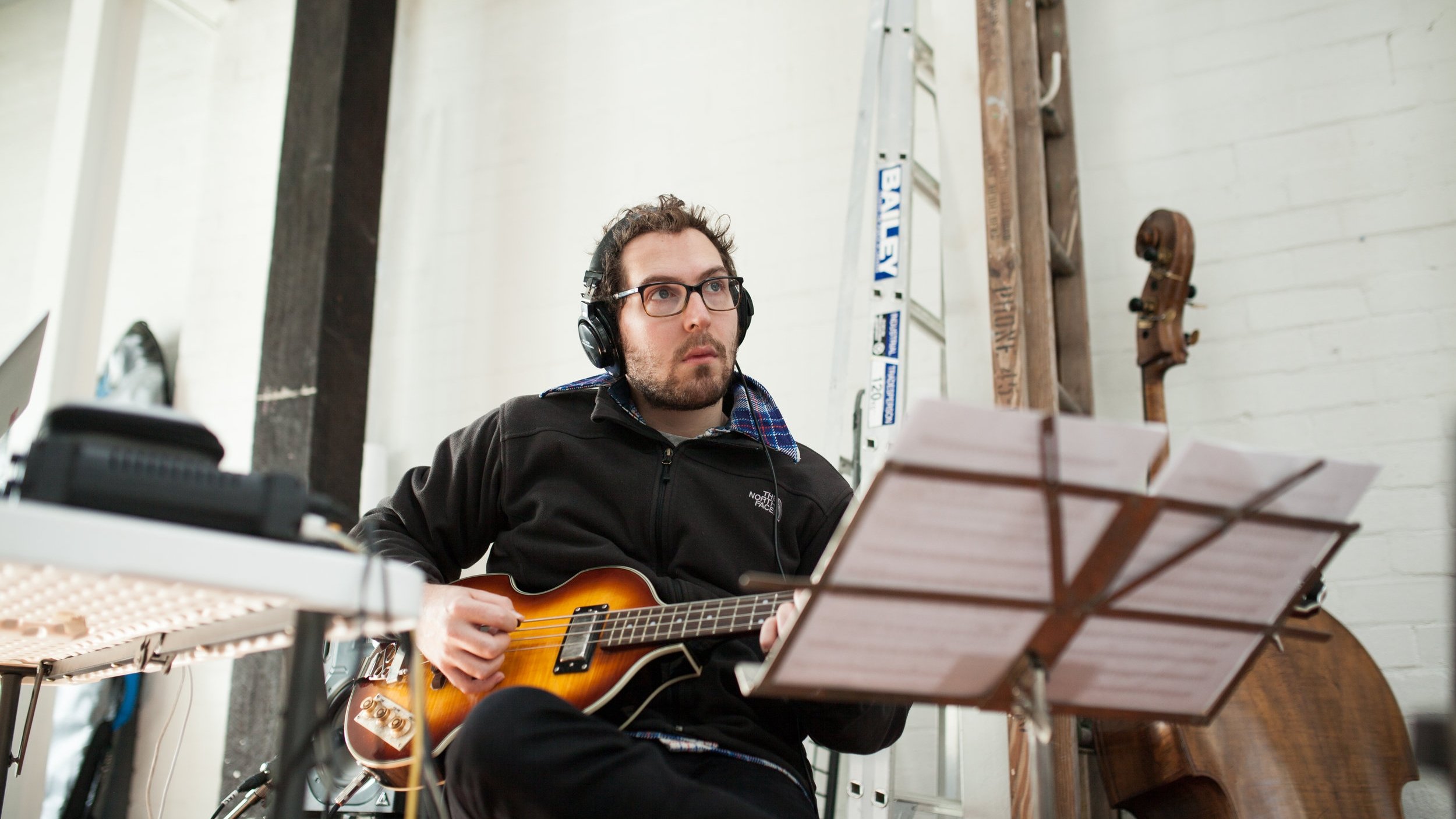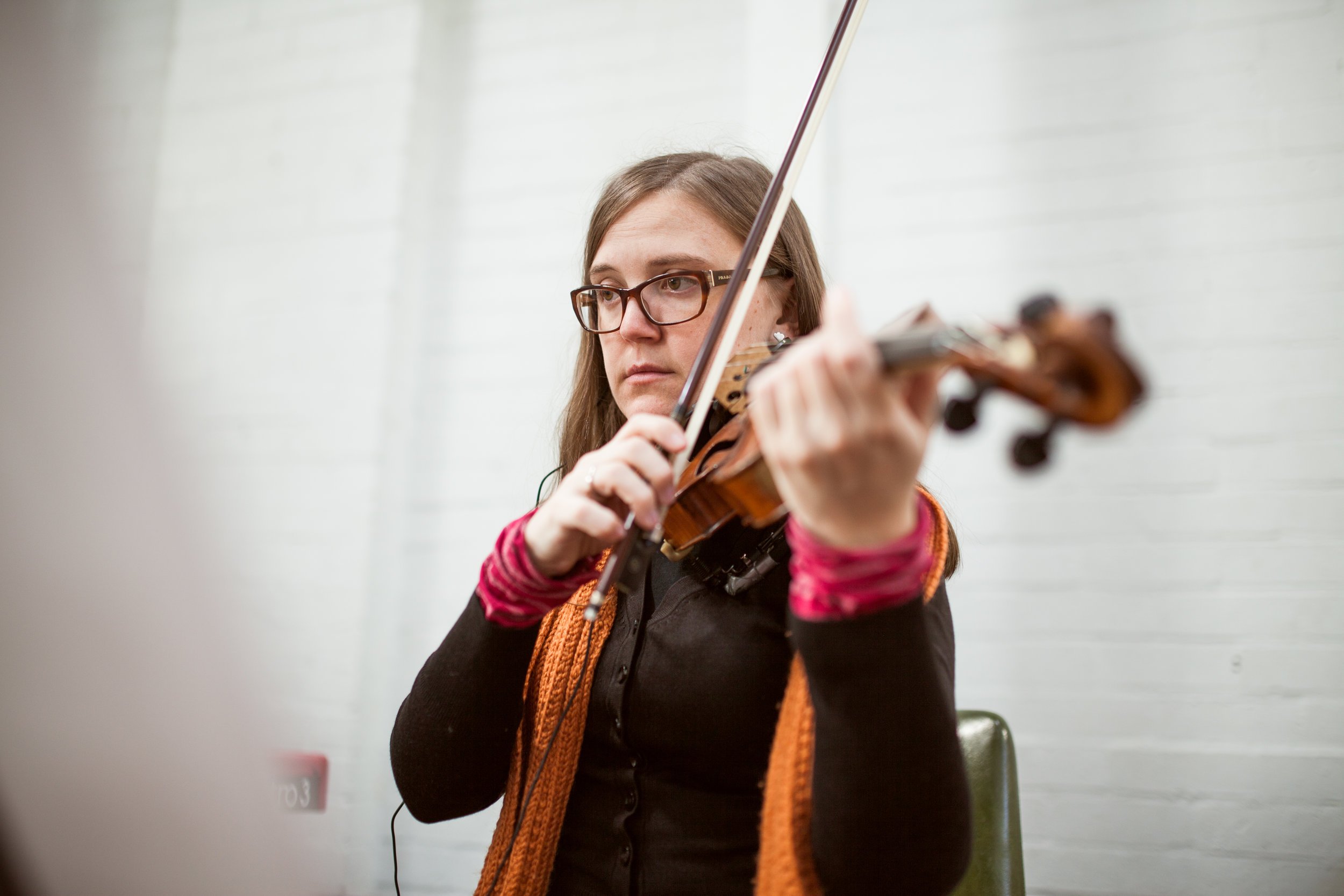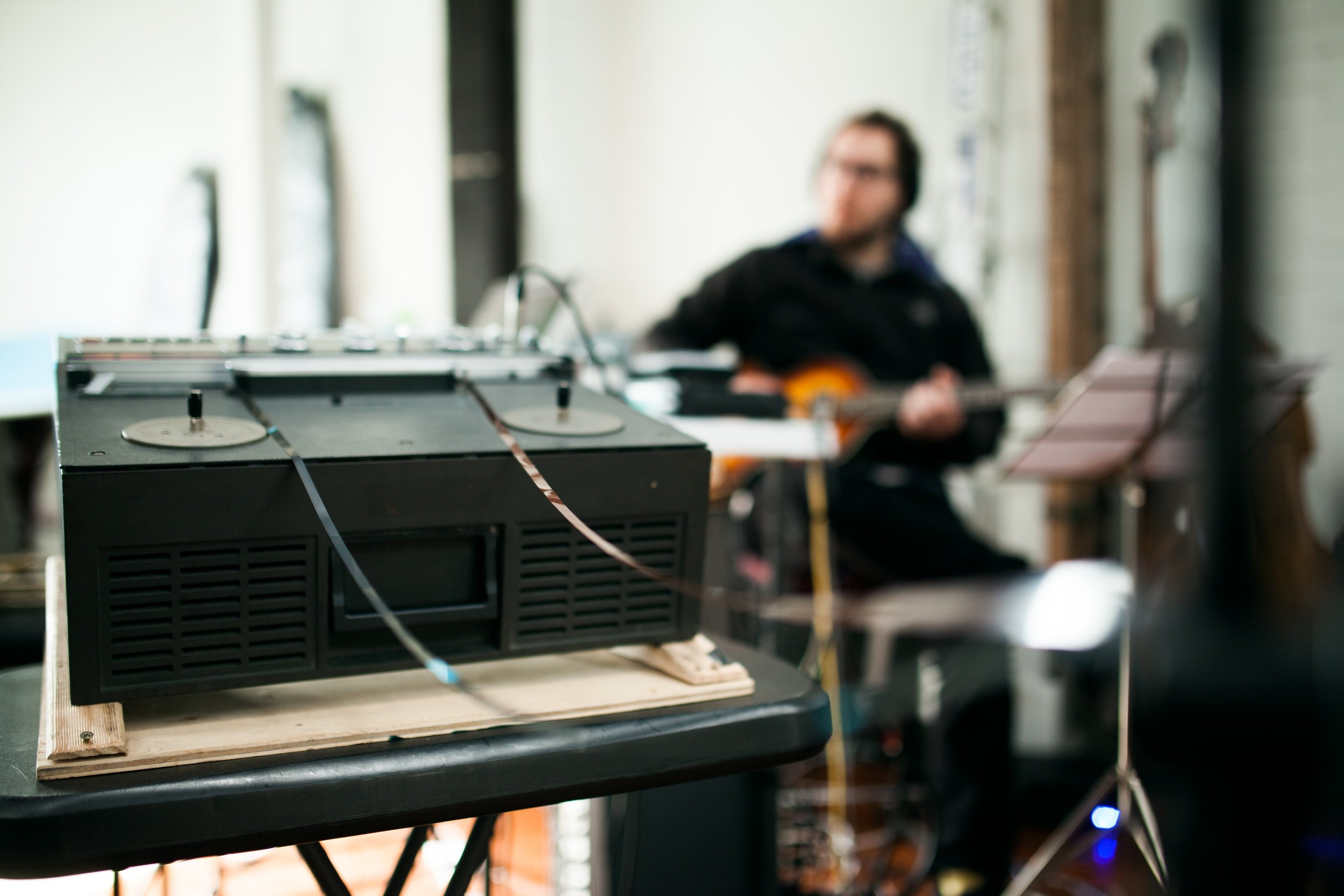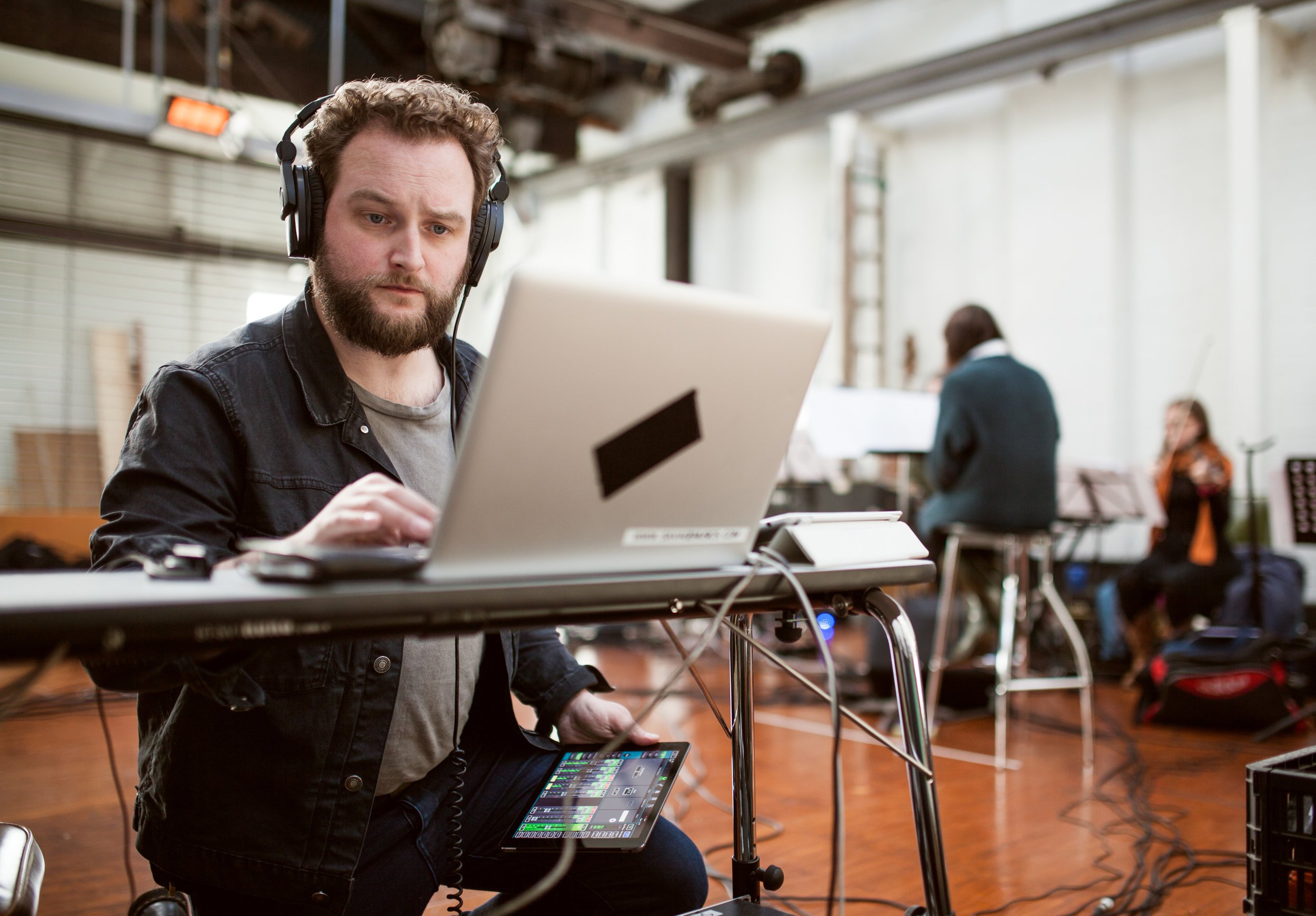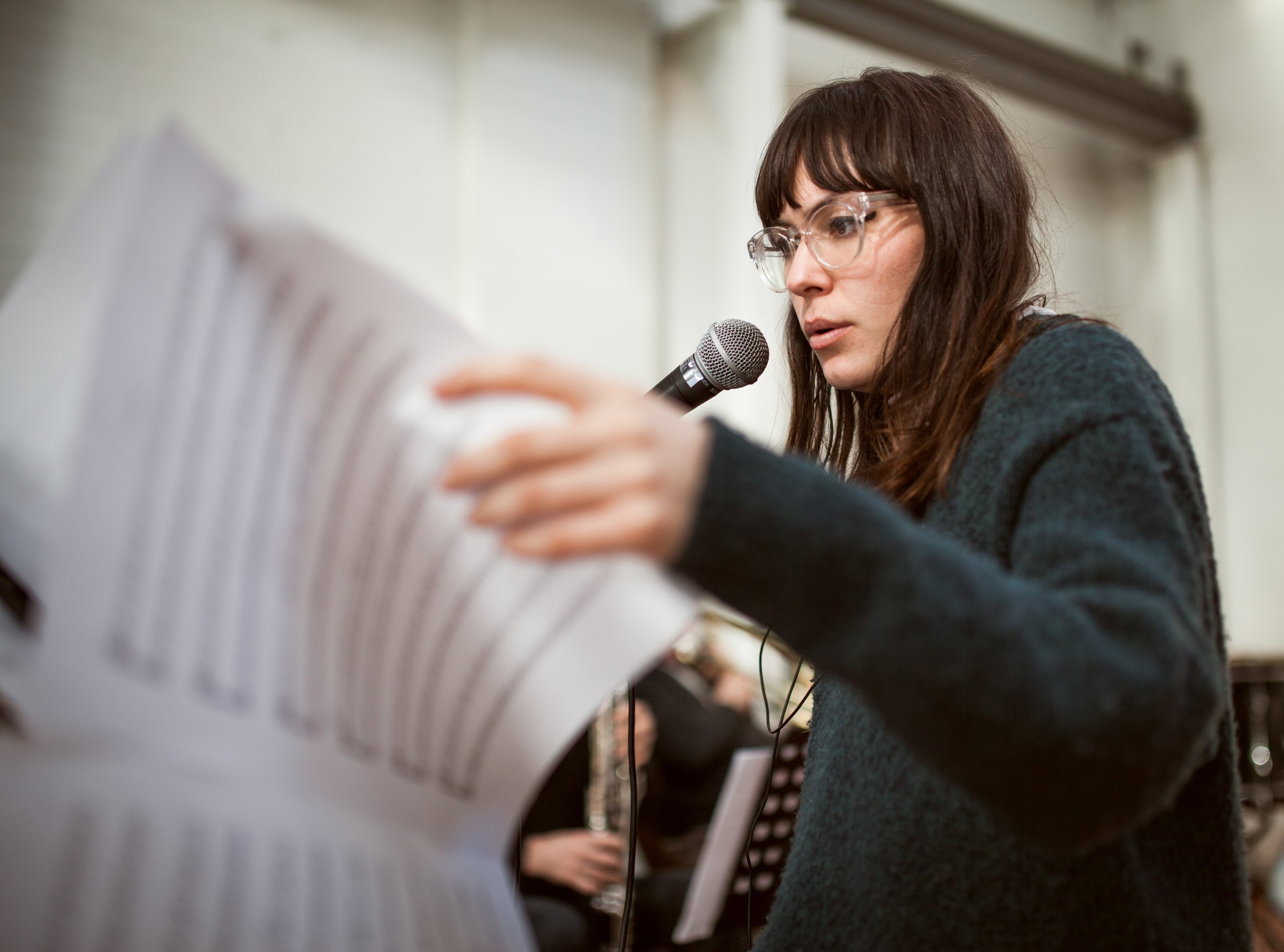The Plains
“Solos here were like songlines, not paving superhighways through a compositional infrastructure but leaving faint footprints in a soundscape that evolved as organically as an ecosystem.”
- Downbeat review of JazzFest Berlin 2019 performance.
Drawing inspiration from DIOMIRA, one of the imaginary cities described in Italo Calvino’s novella, Invisible Cities, Peter Knight’s work sets up a post-minimal logic that refracts and disintegrates as we listen. The instrumentation of the chamber jazz orchestra is expanded with the unexpected additions of turntables, a reel-to-reel tape machine (which replaces the drum kit) and live laptop signal processing. The sounds of acoustic instruments and voices are interwoven with field recordings cut onto vinyl, and are filtered and augmented as Knight plays with our perceptions of what we hear and what we imagine we have heard. Time folds into itself in a very Calvino-esque manner, leaving us with the trace residue of moments half remembered.
THE PLAINS creates a series of musical mirages that form on an endless sonic horizon reflecting and reimagining the wide open spaces of the Australian landscape. It exists in the meeting points between acoustic and electronic approaches and draws together influences from jazz, contemporary classical, and minimalism to create a sound that is at once evocative, sensual, and challenging.
THE PLAINS premiered in Poland at the Wroclaw National Forum of Music. It has since been presented in several festivals. Most recently it was featured in an Australian Art Orchestra headline performance as part of the 2019 Berlin Jazz Festival.
Rehearsal photography by Pier Carthew
Diomira program notes by Matthew Lorenzon (Partial Durations)
An eye that is both open and closed; a woman’s voice captured and smeared; musicians shifting in and out of time; a field of crickets. One passes through Peter Knight’s Diomira as a traveller in a dream. Each new sight and sound is tinged with familiarity, like the 55 vignettes of Italo Calvino’s Invisible Cities, all of which depict Venice as remembered by Marco Polo to an ageing Kublai Khan.
Diomira plays on the longing created by distance. As Calvino writes, a traveller visiting the city of Diomira “feels envy toward those who now believe they have once before lived an evening identical to this and who think they were happy, that time.” In other words, Calvino imagines Marco Polo imagining a visitor being envious of another visitor fondly remembering a similar experience. As the reader can imagine, every level of reimagining makes the imagined happiness that little bit sweeter.
Knight places his memories at a distance by cutting them onto vinyl dub plates. The turntablist, Martin Ng, improvises with the sounds of plastic bags, whispered words, insects, and the voice of Knight’s five-year-old son among the undulating sounds of the 13-piece Australian Art Orchestra. In place of a drumkit, Peter Knight plays the Revox reel-to-reel (another distance-machine), capturing the rhythmic sounds of the orchestra and transforming them live. At points in the journey the orchestra splits into groups marching to different tempi. The diverging lines move in and out of focus like a parade of invented memories.
Since 1994 the Australian Art Orchestra have been the country’s masters of improvisation and are here masters of invented memories as they repeat and tweak Diomira’s short musical fragments. The time of Diomira is elastic, with moments that fly by and moments that seem to stretch toward eternity. Alongside Knight’s musical journey, Scott Morrison’s accompanying video work ruminates upon the motif of the eye, that first port of call for memories before they are deformed, embellished, and decorated.
Matthew Lorenzon September 2017
AWARDS
Albert H Maggs Composition Award 2016
Finalist, APRA AMCOS Art Music Awards, Work of the Year 2017

